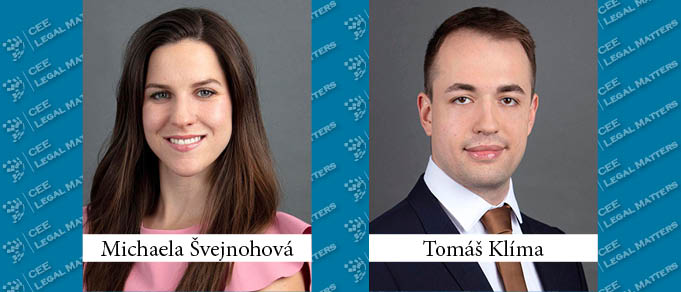A major amendment to consumer law is on the horizon in the Czech Republic, and although it has so far undergone only a first reading in the Chamber of Deputies, it is not premature to look at its content. As for the most part it consists of the implementation of European directives, which leave almost no room for deviation, no major changes to the proposed draft are expected to be made during the legislative process. Another focus of this legislative amendment is digital content, particularly the rights and obligations connected to its supply.
What is digital content?
Digital content supplied by a digital content trader for the user's own use could be, for example, films, games, e-books or programs. The contract for the supply of digital content will be a contract for consideration, although the consideration does not always have to be money. It will also be possible to provide consideration in the form of, among others, the user's personal data (this can be already seen on social networks). Digital content can of course be supplied even without the existence of this legislation. Its added value will therefore be primarily in clarifying mutual rights and obligations.
Right to digital content updates
One of the most significant clarifications in this respect is the arrangement of the right to update. The amendment provides that the user will be legally entitled to the updates that are necessary for the digital content to be used without defect for the duration of the contract. However, the trader will be able to avoid this legal requirement for updates by notifying the user during the contractual process that updates will not be supplied, which the user must explicitly agree to. In addition, the user of course will be entitled to contractually agreed updates. Regardless of whether the trader is obliged to provide updates by law or by contract, the user will have rights arising from defective performance if such updates are not provided.
Rights arising from defective performance
The issue of the burden of proof regarding the existence of a defect is generally related to rights arising from defective performance. Due to the specificity and complexity of digital products, the burden of proof lies on the digital content trader. If a defect manifests itself during the term of the contract, the trader must prove that the digital content is supplied without defects or that the defect was caused by the user, for example by having inadequate hardware, despite the user having been duly informed of the hardware requirements. Otherwise, the trader will be liable for the defect.
Single act of supply
If the digital content is supplied only once, applying the above rules would be very difficult. The amendment therefore proposes a special regime for these situations. In the case of a single act of supply of digital content, the trader is only liable for defects that were in the digital content at the time it was made available. In addition, the law will contain a traditional rebuttable presumption that if the defect manifests itself within one year of the digital content being made available, it already existed at the time of takeover.
The right to lawful updates is rather vague and may lead to interpretive ambiguity. This is because the user is entitled to such updates for as long as they can reasonably expect them. But what is a "reasonable expectation"? According to the explanatory memorandum to the amendment, the answer requires knowledge not only of the purpose of the digital content, but also of the circumstances surrounding the formation of the contract or the nature of the obligation. In this respect, the regulation has therefore left the door wide open for subsequent interpretation by the courts and others.
Consumer contracts
The aforesaid applies to the supply of digital content to any subjects. The amendment, however, will also introduce specific rights and obligations that will only apply if the user is a consumer. The requirements that the digital content must fulfil are themselves essential in relation to consumers. The digital content must not only be adequate for the agreed purpose, but also for the usual purpose, contain instructions with user support, have the appropriate quality, functionality, compatibility and interoperability, and must correspond to the preview or trial version, if provided in advance by the trader.
Conclusion
The proposed legislation is broad and would certainly deserve a longer and far more detailed examination. This article does not seek to answer questions that will ultimately be answered by judicial practice and to argue over the interpretative lack of clarity. It aims to provide the reader with at least a basic overview of the proposed regulation and to help them understand its importance.
By Michaela Švejnohová, Junior Lawyer and Tomas Klima, Paralegal, PONTES




